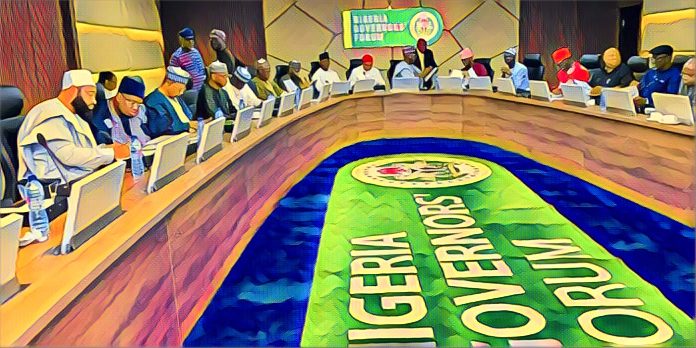The Nigerian Governors Forum (NGF) has faced backlash for its stance on the proposed N60,000 minimum wage, which has become a contentious issue between the Federal Government and Organized Labour. The controversy arose after some Nigerians, voicing their opinions, described the state chief executives’ comments as both “oppressive” and “self-serving.”
The criticism intensified following comments made by George Akume, Secretary to the Government of the Federation (SGF), which many deemed hypocritical given the ongoing wage debate. Benson Upah, head of Information at the Nigeria Labour Congress (NLC), expressed deep concern over the potential repetition of past mistakes, indicating that the public’s frustration is nearing a boiling point. “Nigerians are very angry, and we have tried very hard to hold them back. But we advise the President to be wary of these governors,” Upah stated.
During the heated negotiations, the Nigeria Governors Forum publicly stated that state governments could not afford the proposed N60,000 minimum wage. They warned that some states might even need to borrow money to meet payroll demands. “We are alarmed by the statement credited to the Nigeria Governors Forum. It is unheard of for such a statement to be issued to the world in the middle of ongoing negotiations. It is certainly in bad taste,” Upah added.
Further adding to the controversy, Auwal Musa (Rafsanjani), executive director of the Civil Society and Legislative Advocacy Center, criticized the governors for not adequately utilizing the increased revenue following the removal of fuel subsidies. “A report in February this year showed that the states received over 50 percent higher revenues since June 2023, after the fuel subsidy was removed,” Musa noted, questioning the lavish expenditures and financial mismanagement by the states.
The debate over the minimum wage has exposed a broader issue of economic disparity and governance in Nigeria. Many states reportedly continue to experience financial bloat from unnecessary borrowing and lavish spending, even as they receive substantial federal allocations and revenue increases. For instance, revelations by the Economic and Financial Crimes Commission (EFCC) uncovered that former Kogi State governor, Yahaya Bello, had misused state funds for personal expenses, including his children’s school fees.
The discussion has moved beyond just financial mismanagement and now includes the very system used to determine wages in Nigeria. Critics argue that the governors’ resistance to increasing the minimum wage shows a disconnect with the economic realities faced by average Nigerians, especially considering the rising inflation and living costs. An unnamed civil servant pointed out this disconnect, stating, “Why is there always a fight when it comes to the welfare of the masses, while nobody hears when the rich are given oil wells?”
This ongoing debate has involved various stakeholders, including civil servants, corporate executives, and academics, all calling for a more fair approach to adjusting wages that takes into account the socio-economic challenges faced by the people. Corporate executive Ademola Bakare criticized the governors’ position as inconsiderate given the current economic hardships, saying, “With the price of a bag of rice now higher than both the old minimum wage of N30,000 and the N60,000 insisted by our governors today, it would be insensitive for the government to allow workers to continue earning so little as a minimum wage.”



